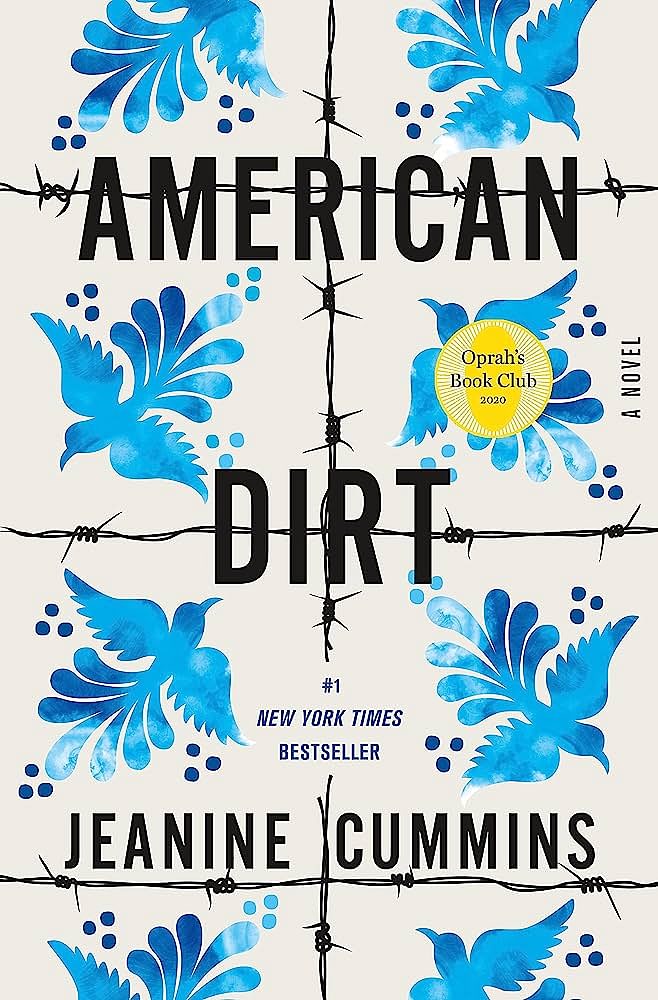

Ignore the controversy.
Ignore the writer's background, ignore cancel culture, ignore the finger wagging, ignore the hindrances: Is American Dirt good?
To put it simply? No.
American Dirt, by Jeanine Cummins, desires to inhabit immigration and the Immigration Experience, but it ends up being more about the journey of parental love in the vein of McCarthy's The Road or Emma Donoghue's Room. And it lands somewhere between those two works, albeit much closer to Donoghue's Room in quality.
The story tells of Lydia and Luca, a mother and son, who have to flee their native Acapulco after the local cartel's jefe, Javier, slaughters their entire family at a quinceanera for Lydia's niece. Their hopes are to reach the United States even as they feel the cartel bearing down on them with each step. Conceptually, it's propulsive: the tension should grab readers on the first page and rarely let loose. The trouble is the writing. And no matter if Cummins is White, Black, Latina, or otherwise, the novel never reaches beyond a decently told, high-stakes adventure even as it yearns to be a thought-provoking supplement to the horrors that actual immigrants face daily.
One of the minor problems comes from the point of view, where Cummins chooses an omniscient narrator who often sucks the life out of the characters, making them all cardboard cutouts of immigrant "types." This narrator describes one traveler in particular as being "a menace, sitting beside [Lydia], and now the threat feels urgent again." It's a lot of telling and less showing.
Lydia and Luca soon befriend two young ladies as they travel north. The addition of the two teenage girls to the trek seem only to serve as a prop for more defiling horrors to occur that, while realistic on the road to the United States for many migrants, feels overall icky and superfluous.
It gets a bit worse. Truly insufferable is the inciting incident that inspired Lydia's family to be murdered in the first place as well as an unnecessary passage on the background of the coyote who tries to get them across the boarder. All that and there's a twist in the last pages that feels less like a shock and more like Cummins couldn't stand the thought of ambiguity or one less climatic moment. It falls flat.
It's not all bad: one particularly touching, poetic piece involving the death of a character off the page is handled with deftness that you wish the rest of the novel would've operated on the same wavelength. To feel that much for a person you'd never met is sort of the point here, and Cummins' writing excels for a short time. The story isn't hard to read, helping to make it a page turner if nothing else.
Of course, the true problem that shadows the entirety of the work is that it reeks of inauthenticity -- it would have that same inauthentic stench despite any knowledge of the author and her background. Great stories should exist, shared, and should be written, no matter who does the writing. But one does question early and often if this particular story needs to be (re)told when such excellent documents like Immigration Nation on Netflix and The Devil's Highway exist already, not to mention tons of other texts that do a much better job of American Dirt's intentions. So when a book like this lacks beautiful prose it needs, the answer is no. American Dirt wasn't needed.




